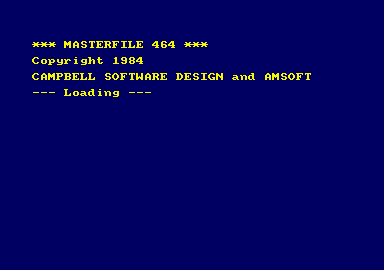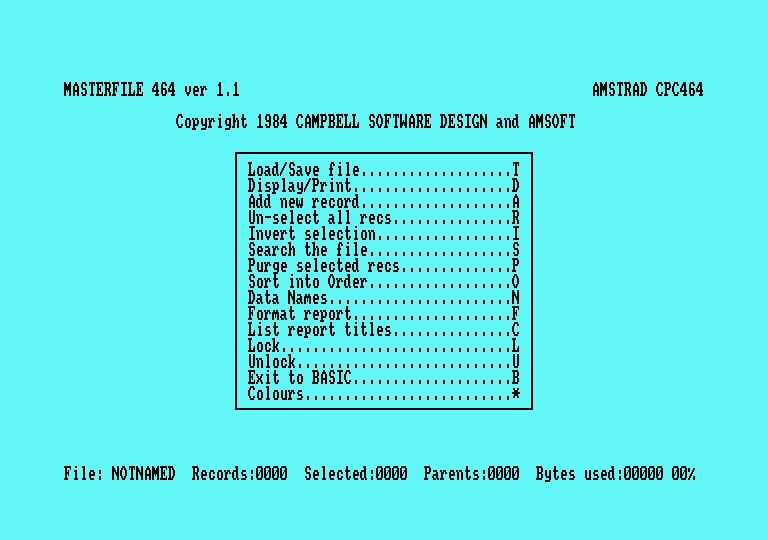Every so often a program comes along that is a real landmark in terms of quality and price. One such is Masterfile 464, converted from the Spectrum version for Amsoft by Campbell Software Design. This is without question the best tape based database I have ever seen. Its features are almost too numerous to document, but points of real note are that it allows up to 34K of storage in each file and there are no fixed length records which means that there is no wasted space. There is 34K available for each individual file, like Tasword 464. Although the program can be transferred to disc without alteration, because everything happens in Ram files must still be that length even on disc. But this does mean that functions such as sort and search are faster than on more disc orientated software. To help with memory management there is a constant record on screen of the percentage of the file space used and the number of bytes free. Presentation is superb, although entirely in 80 column mode which is best on a green monitor, and there are many user friendly prompts supported by a well written manual which makes learning the program very easy. However, the most revolutionary feature is that the database allows 'relational' data with 'parent' and 'child' records. To use the manual's example, if you were storing data on your record collection a 'parent' would be an artist and this information would only be entered once. This record can then point towards several 'children' -the various album titles. Such a two tier system is by far the most efficient method of storing data.  
Tony Kendle , Popular Computing Weekly
| 


